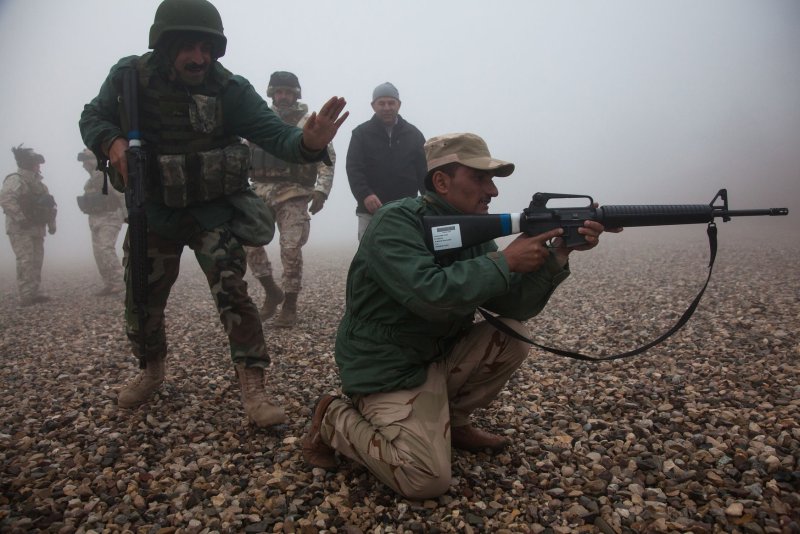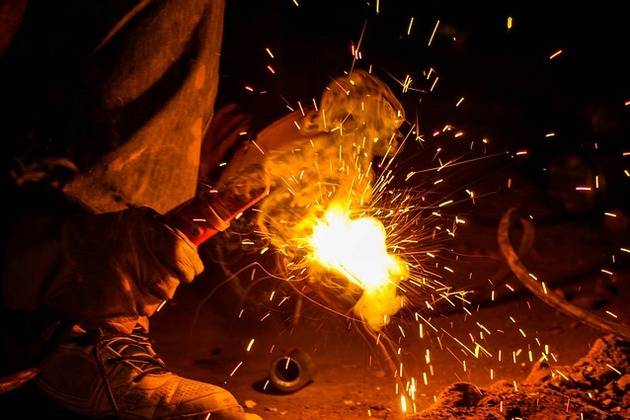Let's see what they can accomplish.
Mosul's Vigilante Brigades Risk It All To Take On IS

Civilians in Mosul say they support the armed groups that kill Islamic State (IS) militants. "The city is suffering because of IS."
By Joanna Paraszczuk and RFE/RL's Radio Free Iraq
September 22, 2015
Their identities are secret. They work after sundown, preferring deserted areas of the city. No one knows where they will strike next. They target different neighborhoods each time.
Their mission is simple: to kill Islamic State (IS) militants.
Their targets never vary, but their methods do. Sometimes they use snipers to take out a militant. Sometimes they plant roadside bombs and blow up cars. Sometimes they stab their victims, sometimes strangle them.
They are Mosul's vigilante brigades, shadowy groups of civilians-turned-armed-assassins who risk their own lives to kill IS gunmen -- as well as those who support them.
IS has done its best to eliminate these assassins, tracking down and killing as many of them as it can. But local people in Mosul say these anonymous resistance fighters have had an impact, that IS has covered up the killings and changed how its gunmen operate in Mosul.
Continue reading at:
Mosul's Vigilante Brigades Risk It All To Take On IS?
Mosul's Vigilante Brigades Risk It All To Take On IS

Civilians in Mosul say they support the armed groups that kill Islamic State (IS) militants. "The city is suffering because of IS."
By Joanna Paraszczuk and RFE/RL's Radio Free Iraq
September 22, 2015
Their identities are secret. They work after sundown, preferring deserted areas of the city. No one knows where they will strike next. They target different neighborhoods each time.
Their mission is simple: to kill Islamic State (IS) militants.
Their targets never vary, but their methods do. Sometimes they use snipers to take out a militant. Sometimes they plant roadside bombs and blow up cars. Sometimes they stab their victims, sometimes strangle them.
They are Mosul's vigilante brigades, shadowy groups of civilians-turned-armed-assassins who risk their own lives to kill IS gunmen -- as well as those who support them.
IS has done its best to eliminate these assassins, tracking down and killing as many of them as it can. But local people in Mosul say these anonymous resistance fighters have had an impact, that IS has covered up the killings and changed how its gunmen operate in Mosul.
Continue reading at:
Mosul's Vigilante Brigades Risk It All To Take On IS?







